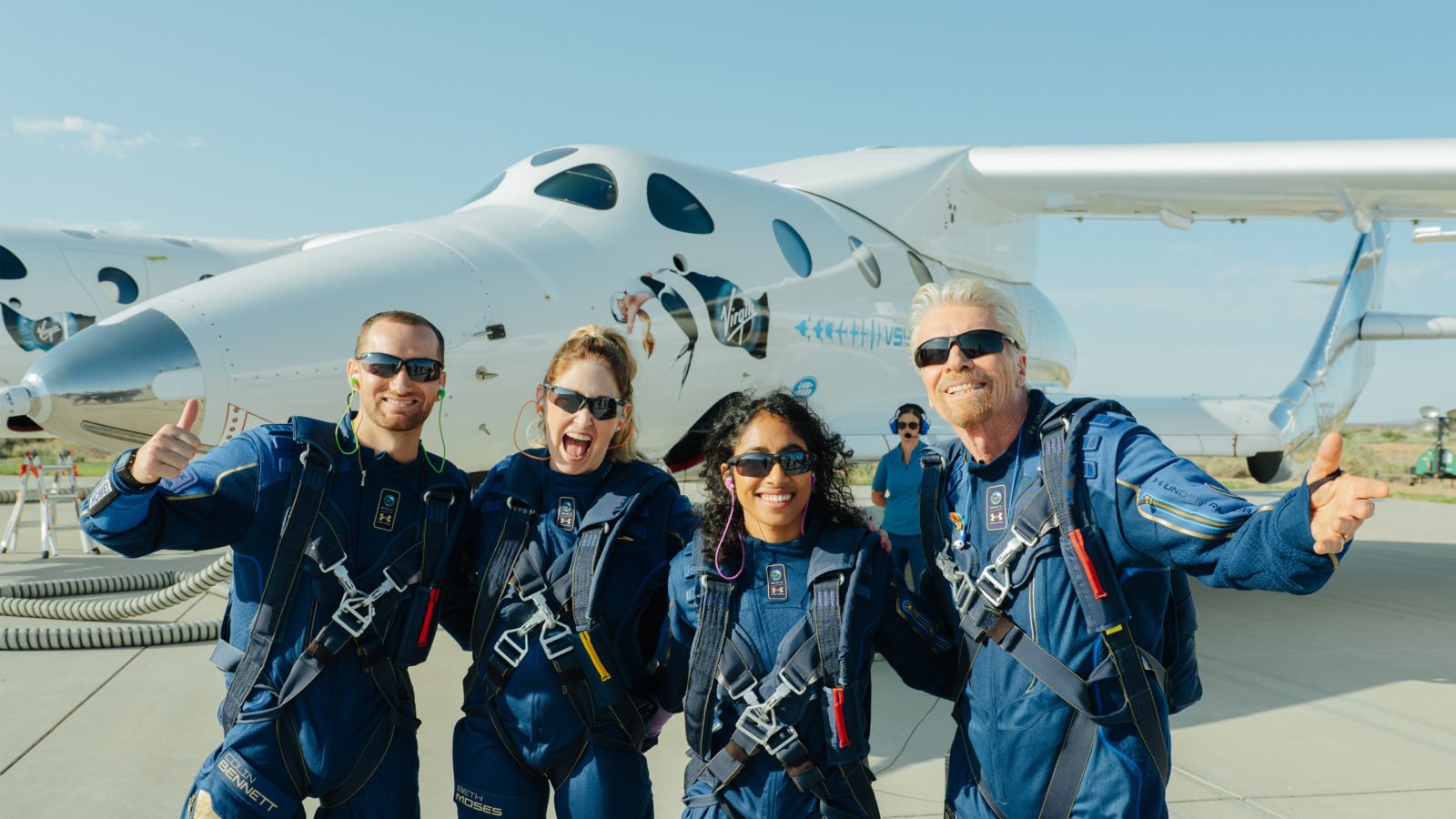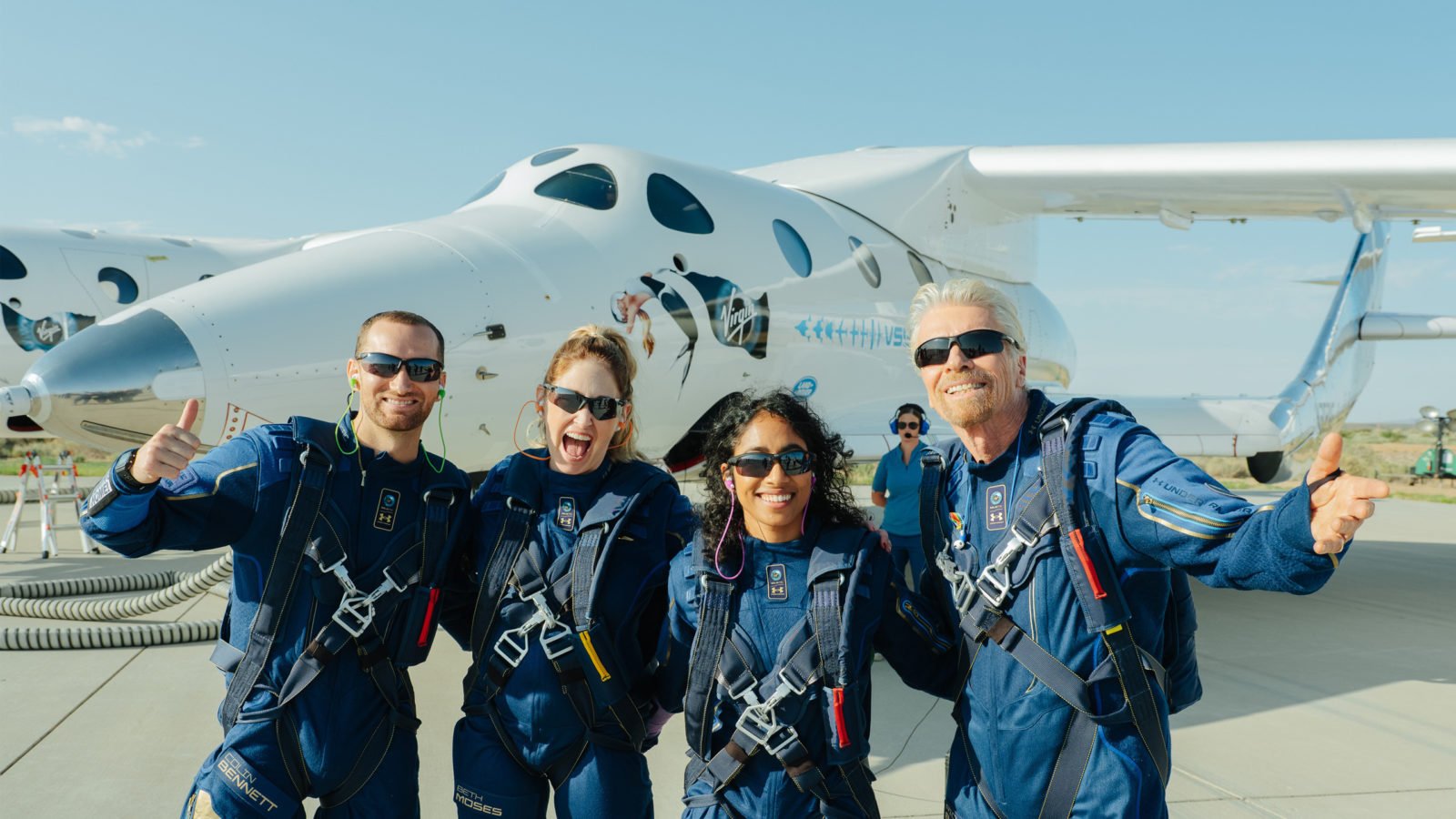Last week, Elon Musk's privately held SpaceX announced plans to send customers into space by early 2022 through a partnership with Space Adventures. The move brought comparisons to Richard Branson's Virgin Galactic (SPCE +4.76%) and its efforts to offer commercial flights starting this year. It may have also led investors to think there's now competition in space travel.
The easy comparison between the two seems to make them direct competitors, but that's not really the case. SpaceX is currently looking to use its rockets for space tourism, circling the planet a few times as much as 250 miles above the Earth's surface before landing. Virgin Galactic is much more focused on point-to-point travel, and ultimately that may be the more valuable commercial business long-term.

VSS Unity arrives at Spaceport America in New Mexico. Image source: Virgin Galactic.
Set out on a different path
Both the technology and business models of Virgin Galactic and SpaceX show the differences in the way they view their futures in space. SpaceX rockets take off and land vertically and are ultimately being built to travel as far away as Mars. The red planet has always been Elon Musk's long-term vision for the space company. At its core, SpaceX is built to fly high into space, whether that's to launch satellites or take people to Mars.
Virgin Galactic, on the other hand, performs horizontal take-offs and landings with what it calls a carrier aircraft, which takes the spacecraft to 45,000 feet and then releases it, allowing it to fly into orbit. Long-term, the spacecraft isn't meant for tourism, it's meant to be easily usable for ultra-fast point-to-point travel.
Both companies plan to bring paying customers to space, but one is for tourism and the other is to increase productivity. That drives everything from the design of their spacecraft to how they plan to sell tickets to customers.
Virgin Galactic's vision of space travel
Initial flights aboard Virgin Galactic's SpaceShipTwo will be targeted toward high-net-worth individuals who will be using space travel as a luxury adventure. In that respect, Virgin Galactic's start is similar to SpaceX's. But the company plans to increase capacity with five spacecraft, 270 flights, and $590 million in projected revenue by 2023. The goal is to lower travel costs and expand the market of people looking to get quickly from one city to another.
By 2040, the U.S. Chamber of Commerce estimates that the commercial space industry will reach $1.5 trillion of value, and Virgin Galactic is setting itself up to be the leader in the travel portion of that industry.
The bigger threat
Just because I don't think SpaceX should be a worry doesn't mean Virgin Galactic doesn't have threats. Its biggest dangers just are more internal. If management has overestimated the space travel market, the company's massive investment in building spacecraft won't pay off the way investors are hoping. And the execution risk is high, because any accidents or mechanical problems with their spacecraft could end the business before it gets going.
What I don't think investors should worry about is competition from SpaceX. The company is focused on other businesses beyond point-to-point travel, leaving a big market open for Virgin Galactic. If it executes on what could be a multibillion-dollar market, Virgin Galactic could be a huge growth stock for investors.






